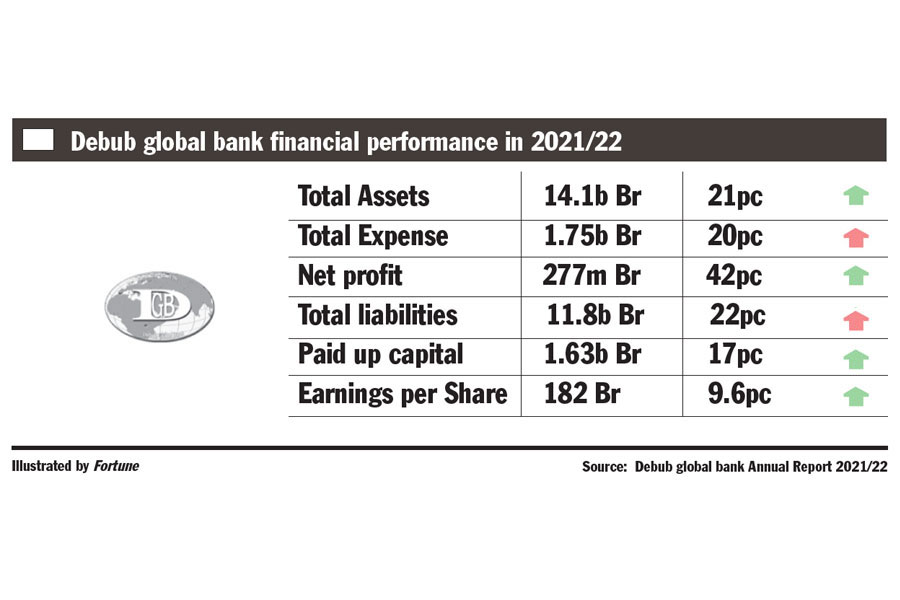
Fortune News | Apr 15,2023
Wendmeneh Taddese is a second-year marketing student at Admass University College who dreams of migrating to the United States and changing his life.
“I am not satisfied with my current life,” he says. “I am not earning what I deserve.”
He was at an internet café, Simon Café, around Qera in late October, filling forms and having his picture taken to apply for the US Diversity Visa or DV-lottery.
The café charges him 30 Br to use the internet and apply electronically for the visa. Wendmeneh has been doing this for the past six years without fail, hoping to receive a permanent residency permit to live in the United States.
A DV-lottery is a US government lottery program, the only one of its kind, which awards green cards issued by US Citizenship and Immigration Services to individuals living outside the United States. For the past three decades, those who have won have been allowed to stay and work in the North American country.
The aim of introducing the lottery system is to diversify the immigrant population in the United States and select applicants mostly from countries that have low immigrant representation to the United States. No one country can receive more than seven percent of the available DVs (diversity visas) a year.
This year’s program, DV-2020 was opened for applicants from October 3, 2018 to November 6, 2018. Thousands of Ethiopians have applied for the program including Wendmeneh and Mihret Tegegn, a 29-year-old customer relations officer at the Piassa branch of the Commercial Bank of Ethiopia.
Like Wendmeneh, she is a veteran of this process, dutifully filling out and submitting the yearly applications five times.
These DVs handed to Ethiopians are a fraction of what the United States makes available to natives of eligible countries around the world annually. It usually makes 50,000 DVs available every year.
“The only thing I want is to forget all my problems here and start fresh,” says Mihret, who paid 20 Br at another internet café near where she works.
Like many other Ethiopians that have relatives and friends that won the DV lottery, Mihret’s mother and sister are in the United States after receiving the visa about a decade ago.
“My sister did her first degree in the US, and now she is living and working there as a skin care specialist,” she says.
Many Ethiopians see an opportunity in the program to change their lives by immigrating to the United States, where they hope to raise the standard of their living and be able to help family members here in Ethiopia.
This expectation of legal means of moving to the United State has helped lift business opportunities of some internet providers around the country as customers flock to them to fill out and submit the DV applications electronically. Since the majority of Ethiopians do not have internet access in their homes and offices, the internet cafes fill a niche by providing affordable and adequately fast internet connection.
During the month when the application is opened, many people go to these cafes both to use the internet and to receive help in filling out the applications.
“DV lotteries are the most critical businesses to us,” Weynishet Seleshie, deputy director of Spring Colour Printing & Advertisement, says. “A lot of customers come to our office to apply and this boosts our income more than usual.”
Spring started out as an internet café, and still functions as one, but eventually it expanded its business into colour printing, copying and preparing promotional material. Still, profit from internet service that they provide usually gets a boost during DV seasons, particularly toward the closing of the application period.
These DVs handed to Ethiopians are a fraction of what the United States makes available to natives of eligible countries around the world annually. It usually makes 50,000 DVs available every year. | Sawerawork Teferi (Fortune photographer) ( Simple compatibility with Gutenberg user interface: enable "Admin bar" under the Settings — "Slug" option unset by default on new installations Please to make sure it works as you expect. )
During the roughly 30 days when the application is opened, the business generates an average of 450 Br a day extra from DV applicants. When the deadline for the the program approaches, the daily revenue can go up to 900 Br a day.
Apparently, the number of visitors to the internet cafes have been declining recently. Last year, 40 to 50 people would turn up at Spring, but this number has been halved this year. The staff of internet cafes attribute this slowdown to the slow internet connections that have driven away their customers.
“Of the applicants that visit our internet cafe, over two-thirds are young college or recent graduates,” Weynishet says. “Sometimes, families come as a group also.”
Applicants must fill out details such as names, gender, date and city of birth, educational background, marital status and nationality in the application forms. They also must include an electronic copy of a portrait photo and must have a valid mailing address. When they successfully complete and submit their applications, they receive an identification number that they use to track the information on the application status. To qualify for the program, applicants must have been born in an eligible country, completed high school or have two years of experience in an occupation that requires at least two other years of training or experience.
From the list of eligible applicants, the United States’ Department of State makes a random selection. The pool of applicants that they choose from last year was 22.4 million people. The year before saw the biggest record number of people, 23 million, apply, according to the US Department of State.
Ethiopia is one of the eight countries that had over a million of its citizens apply for a visa each year. About 2.2 million Ghanaians, 2.1 million people from Uzbekistan and 1.6 million Iranians apply annually as well.
Applying for a DV program is just the start though. To advance to the next step, applicants must go through a selection process, confirmation of qualifications, submitting supporting documents and sit for an interview.
The number of Ethiopians that reached this level (generally considered winning the DV, since selections after this stage is not random) in the last five years is 11,112.
Not all qualify for a visa, but not many fail the interview process either. Ethiopia sends thousands of citizens to the United States every year through the program. Last year 2,283 passed and were given residency permits in the United States.
These DVs handed to Ethiopians are a fraction of what the United States makes available to natives of eligible countries around the world annually. It usually makes 50,000 DVs available every year.
Throughout the years, there have been various attempts in the United States’ legislative houses to repeal the legislation for the DV program. The current administration of President Donald Trump has likewise called for an end to it.
For the internet cafes and hopefuls of a life in the North American nation, this would be a dreaded turn of events.
“The DV lottery is important especially for those in the low-income groups who are unable to get adequate access to education, health or job opportunities,” said Tadelle Ferede (PhD), assistant professor at Addis Abeba University’s Department of Economics. “The nation also benefits in the form of foreign currency through remittances.”
Wudeneh is very hopeful of this year’s draw.
“I hope I will be one of the winners,” he says. “If I don’t get it this time, I will continue trying in years to come.”
PUBLISHED ON
Dec 22,2018 [ VOL
19 , NO
968]

Fortune News | Apr 15,2023

Radar | Aug 27,2022
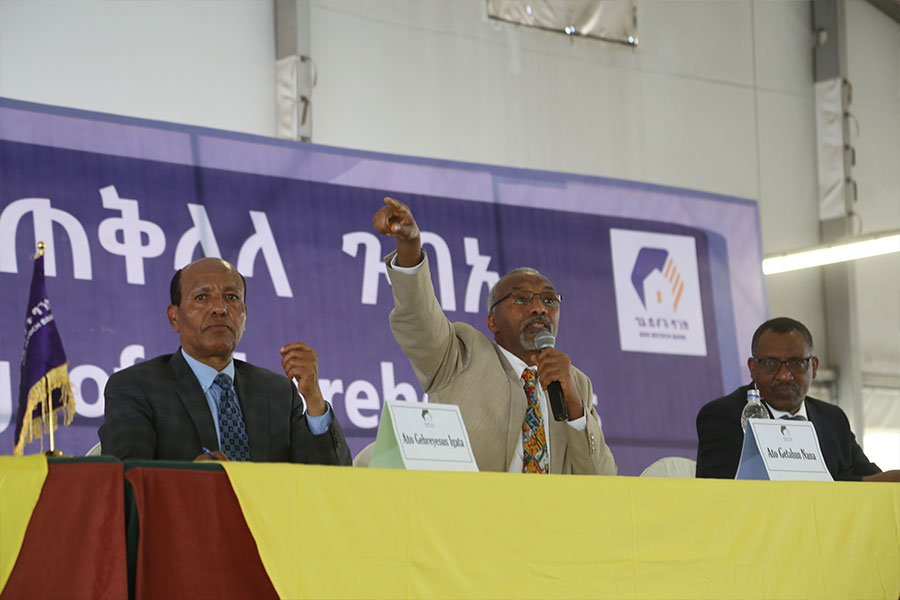
Radar |
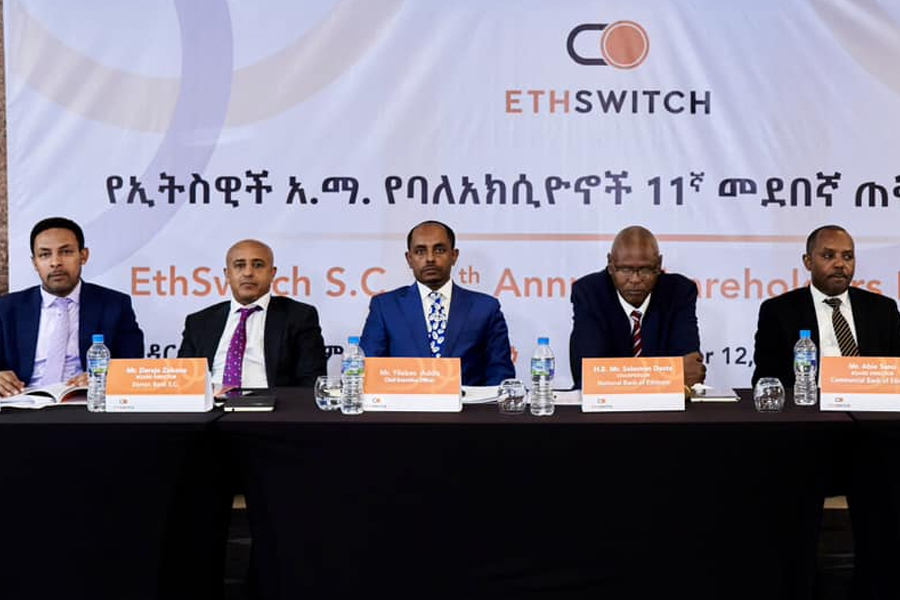
Radar | Nov 16,2024
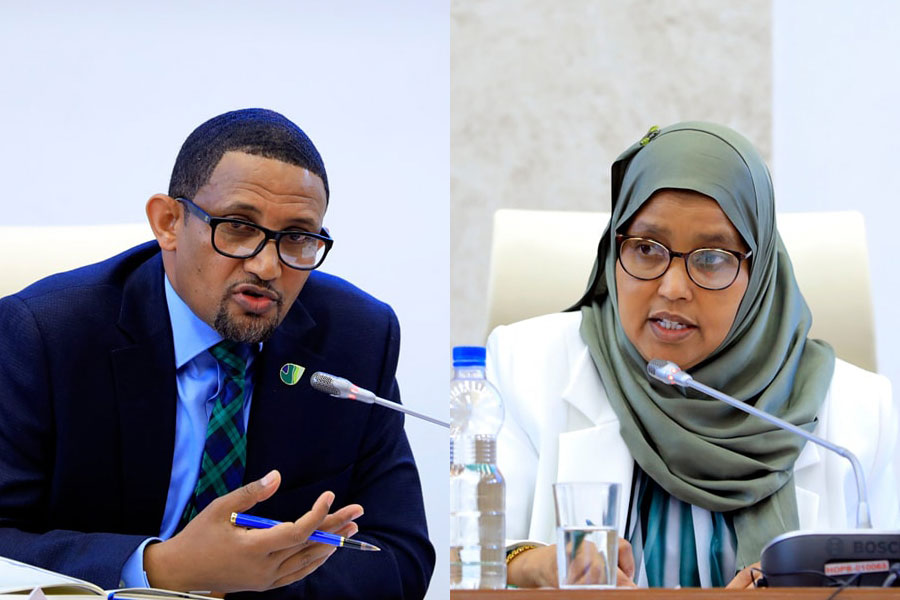
Fortune News | May 04,2024

Radar | Jul 23,2022
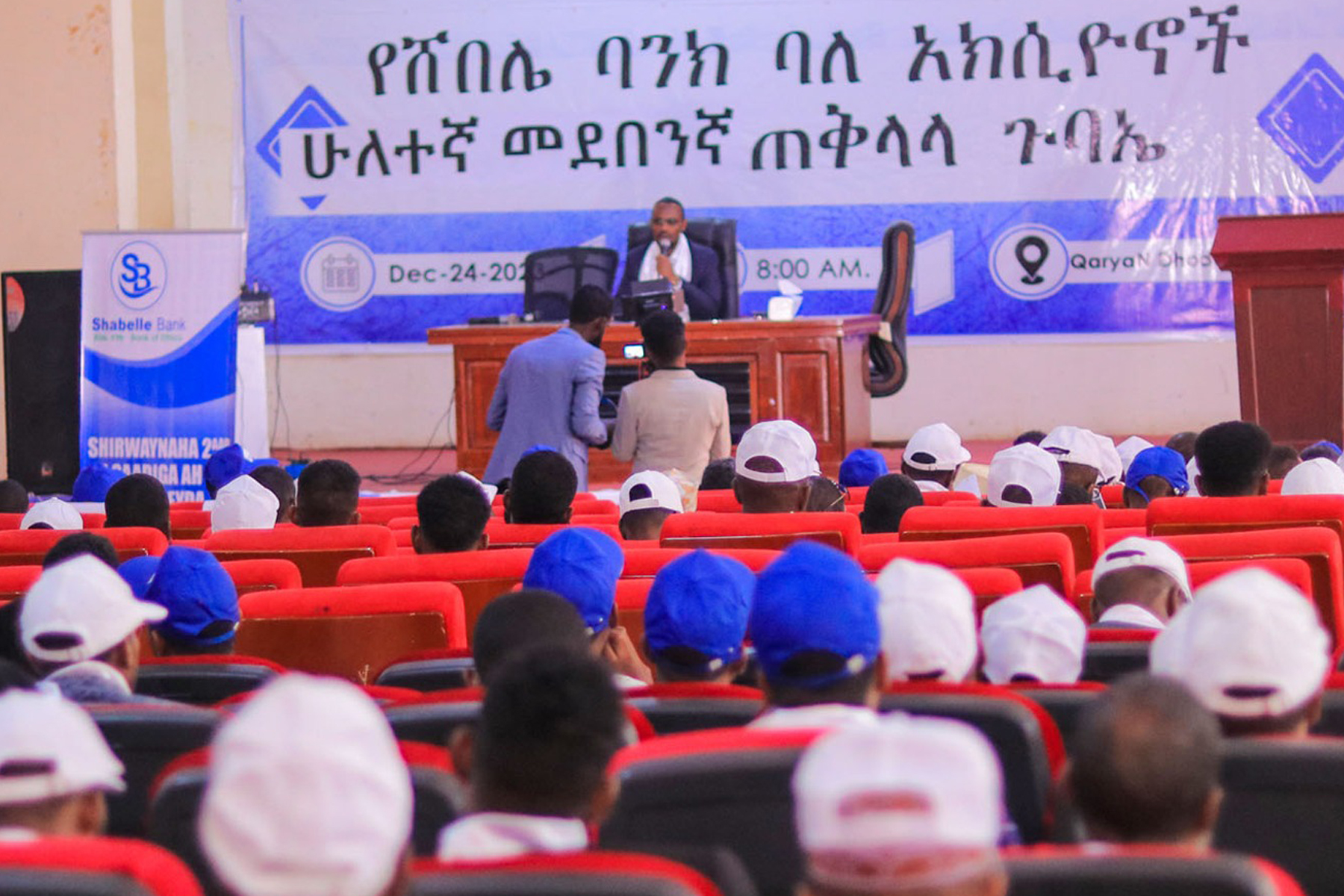
Fortune News | Apr 06,2024

Editorial | Jul 29,2023
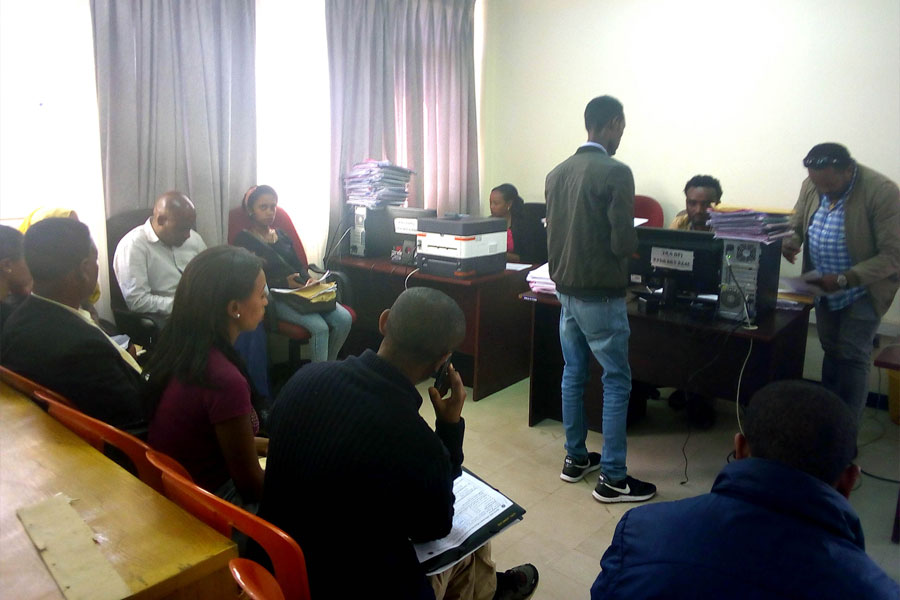
Agenda | Nov 20,2021

Radar | Jul 13,2024

Dec 22 , 2024 . By TIZITA SHEWAFERAW
Charged with transforming colossal state-owned enterprises into modern and competitiv...

Aug 18 , 2024 . By AKSAH ITALO
Although predictable Yonas Zerihun's job in the ride-hailing service is not immune to...

Jul 28 , 2024 . By TIZITA SHEWAFERAW
Unhabitual, perhaps too many, Samuel Gebreyohannes, 38, used to occasionally enjoy a couple of beers at breakfast. However, he recently swit...

Jul 13 , 2024 . By AKSAH ITALO
Investors who rely on tractors, trucks, and field vehicles for commuting, transporting commodities, and f...

Jul 5 , 2025
Six years ago, Ethiopia was the darling of international liberal commentators. A year...

Jun 28 , 2025
Meseret Damtie, the assertive auditor general, has never been shy about naming names...

Jun 21 , 2025
A well-worn adage says, “Budget is not destiny, but it is direction.” Examining t...

Jun 14 , 2025
Yet again, the Horn of Africa is bracing for trouble. A region already frayed by wars...